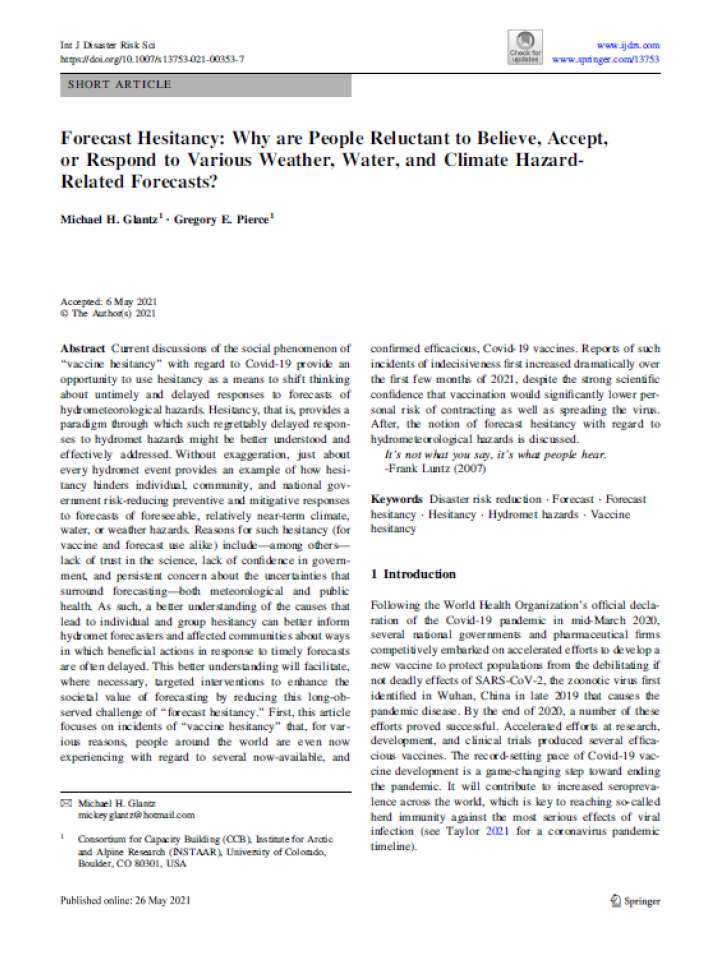Forecast hesitancy: why are people reluctant to believe, accept, or respond to various weather, water, and climate hazard-related forecasts?
This article focuses on incidents of “vaccine hesitancy” that, for various reasons, people around the world are even now experiencing with regard to several now-available, and confirmed efficacious, Covid-19 vaccines. Reports of such incidents of indecisiveness first increased dramatically over the first few months of 2021, despite the strong scientific confidence that vaccination would significantly lower personal risk of contracting as well as spreading the virus. After, the notion of forecast hesitancy with regard to hydrometeorological hazards is discussed.
Hesitancy, that is, provides a paradigm through which such regrettably delayed responses to hydromet hazards might be better understood and effectively addressed. Without exaggeration, just about every hydromet event provides an example of how hesitancy hinders individual, community, and national government risk-reducing preventive and mitigative responses to forecasts of foreseeable, relatively near-term climate, water, or weather hazards. Reasons for such hesitancy (for vaccine and forecast use alike) include—among others—lack of trust in the science, lack of confidence in government, and persistent concern about the uncertainties that surround forecasting—both meteorological and public health.
Explore further
